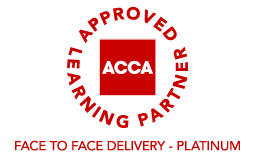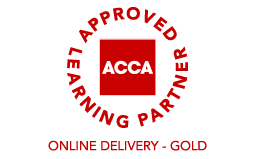For countless individuals, small business owners, organizations and government bodies, an accountant is a valuable member to have in their team to perform crucial tasks related to finance.
If you are thinking about pursuing finance and accountancy as a career, here are six important things to know about this field, including what you need to know and must be able to do in order to be successful.
1. What Do Accountants Do?
An accountant’s role is to help individuals, companies and organizations manage their financial records and make smart decisions regarding the use of their money. Their duties include:- Preparing financial statements and reports
- Ensuring accuracy and maintaining compliance in record-keeping
- Evaluating financial risks
- Developing budgets
- Advising key executives on crucial financial strategies and decisions
- Presenting reports to stakeholders
- Meeting other accounting personnel
- Going through tax returns
2. Accountant Qualifications
What makes a person perfect for the role of an accountant? They will need the following:Accounting certifications
The most important requirement when entering the world of accounting is professional certification. This qualification enables accountants to learn vital technical information for various finance, investment and accounting employment positions, as well as develop strategic and organization management skills that they can apply in the business environment they will be working in. Examples of globally recognized certifications are the Association of Chartered Certified Accountants (ACCA) and the Chartered Financial Analyst (CFA) designations. These can be obtained by taking an ACCA certification course or a CFA course from a reliable financial training course provider. While certified accountants take on more crucial roles and responsibilities, they also benefit from advantages such as becoming members of professional communities, increased pay, improved career mobility, better work performance, and increased opportunities to learn and fulfill professional goals.An accounting degree
Most accounting jobs – even entry-level ones – require a relevant degree. To get an accounting career started, a bachelor’s degree, typically in accounting or business administration, provides proper foundational knowledge and skills in the accounting field. Most bachelor’s programs take four years to complete. A master’s degree is essential to acquiring advanced accounting knowledge in more specialized topics. Enrolling in a master’s program in accounting or taxation takes two years and can open doors for more opportunities to take on higher-level roles such as accounting manager or partner in an accounting firm.Significant accounting industry experience
Accounting graduates can gain valuable experience by working as an intern and gaining hands-on skills and professional insights in an actual accounting environment. Because almost every sector requires accounting functions done for them, aspiring accountants can apply for internship offers from different businesses, government organizations, nonprofits and public accounting firms. This is also an opportunity to build professional connections and potentially secure job offers from the companies where they intern.3. Accounting Specializations
Accountants can choose from a wide range of accounting specializations (industry-specific accounting principles and practices to focus on). The specialization they choose determines the kind of clients they will be catering to, from individuals to corporations and government entities. Here are examples of accounting specializations:- Auditing – Determining the accuracy of a business or company’s financial statements and information
- Bookkeeping – Recording a business or company’s financial transactions
- Financial Accounting – Monitoring all of the money that goes in and out of a business or company
- Internal Financial Reporting – Tracking a business unit’s expenses and revenues
- External Financial Reporting – Providing a company’s shareholders and regulatory agencies with their financial information
- Management Accounting – Helping the management of a company to make informed business decisions through recording, organizing, categorizing and summarizing their financial information
- Tax Accounting – Calculating the taxes that an individual or company owes to tax authorities
- Forensic Accounting – Investigating financial transactions to see if they are of an unethical, illegal or fraudulent nature
4. Types of Accountants
There is more than one kind of accountant that an accounting professional can choose to be. Here are the most common types:- Certified Public Accountant (CPA) – An accountant who has successfully passed the Uniform CPA Examination and is tasked with ensuring that individuals and organizations comply with the generally accepted accounting principles (GAAP) or established accounting standards.
- Chartered Accountant – A chartered accountant is an international designation granted to accounting professionals other than the United States. They focus on financial accounting, taxation, management accounting and applied finance.
- Investment Accountant – This type of accountant works in asset management companies and brokerage firms. They process their clients’ investments and provide financial advice and consulting services, as well help develop a company’s financial strategies.
- Government Accountant – This accountant works in all branches of government and is well-versed in government statutes, tax codes, and other financial regulations for both the public and private sectors. They also perform system audits, manage public funds or investigate white-collar crimes.
- Financial Advisor – This professional helps individuals make short- and long-term decisions regarding the best use and investment of their money. They create personalized financial plans to meet their clients’ specific goals.
- Tax Examiner – This accountant reviews the tax returns filed by individuals and businesses, ensuring that they are complete, accurate and free of errors.
5. Important Skills of an Accountant
To command the attention of employers, accounting candidates must stay up to date with the essential soft and technical skills and current best practices in the field.Soft skills
- Critical thinking (for checking financial information, investigating issues, resolving ethical dilemmas and devising solutions as needed)
- Effective verbal and written communication (for meeting with clients and stakeholders, collaborating with fellow accountants and documenting sensitive financial information)
- Keen attention to detail (for spotting errors and ensuring strict compliance with industry regulations and deadlines)
- Problem solving (for analyzing data, predicting trends, and meeting their clients’ every need)
- Time management and organization (for juggling meetings and paperwork and submitting documents on time, such as during tax season)
Technical skills
- Preparing and reporting on financial statements
- Using accounting software such as Quickbooks and Google Workspace
- Using Excel spreadsheet software



